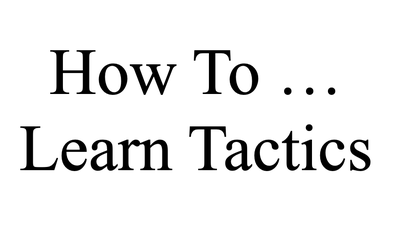
Analyze Games on the Computer
The Modern Approach!Have you ever wondered how to analyze chess games? Probably not, but I must insist that you do so. Analyzing chess games is one of the most common sense approaches in learning how the greats play. Masters tell you to analyze games. But what does that mean? When you decide to look at a game you have no idea what to analyze. By the end of the game, you suddenly realize to your horror, that you have no idea what took place. Sure you know Alekhine's moves were amazing, but you don't understand why. Here is where I come in. I hope you enjoy.
- Being engaged
Perhaps the most important concept to take away is to be engaged. Masters of the old, stuck in their ways recommend that you look at the games on a real board. Of course this allows you to be engaged in some respect. However, there is a critical flaw; the difficulty to retain the knowledge you have acquired from the said game. You go through the game, and you have analyzed each move deliberately. Yet the next day, or even in a few hours you have basically forgotten everything you learned. Why is this? Here is a hint, unfortunately, I am going to force you to relive your biggest disdain in childhood, yes, school.
- Taking notes
In school when the teacher speaks, what were you trained to do? You were trained to take notes. So as a student of the game, why have you decided to forgo the most important tool in your learning experience? This is where the modern approach comes in. Utilizing a chess study, might be a better fit to learn. On lichess, you can go to the study feature. But what should you write notes on?
- Being deliberate
While writing notes, you should write begin from on the first move. Every single move, has a purpose, an idea. This will not only force you to be engaged, it will also help you as a chess player learn how to think. Mindlessly making moves throughout the opening is one of the easiest ways to have no plan. Every move has a purpose. Just because it is customary to play e4, it does not mean you should just dismiss taking notes on it.
The move e4, takes control of the center. The pawn controls the d5 and f5 squares. The king's bishop on f1 is open to develop, allowing for a quicker castling for king safety. The queen is also open to develop (although not recommended). d4 is also threatened.
Did you immediately think of all of these ideas? Chances are, you didn't. On the first move, you have already diverged from your purpose. That is to analyze the chess game. Although tedious in the beginning, you will learn a fundamental concept in chess, and that is to think about your moves.
- Example game (four move checkmate)
- Concluding remarks
Analyzing games can be a chore, however, if done properly you will be able to learn concepts and ideas. You will force yourself to think for yourself. In other words, you will be engaged. Taking notes is one of the best strategies when learning any topic. In the beginning of your journey, writing notes from the first move on is highly recommended. However, after some time, you will be able to decide what works for you. You will become more proficient in your craft, the sky is the limit.
Thanks for reading, I hope I have helped with your chess journey.




